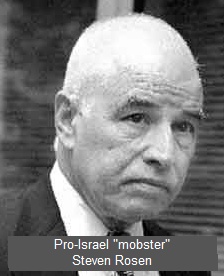Why I’m backing Obama
By Susan Eisenhower, Washington Post, February 2, 2008
Forty-seven years ago, my grandfather Dwight D. Eisenhower bid farewell to a nation he had served for more than five decades. In his televised address, Ike famously coined the term “military-industrial complex,” and he offered advice that is still relevant today. “As we peer into society’s future,” he said, we “must avoid the impulse to live only for today, plundering, for our own ease and convenience, the precious resources of tomorrow. We cannot mortgage the material assets of our grandchildren without risking the loss also of their political and spiritual heritage. We want democracy to survive for all generations to come, not to become the insolvent phantom of tomorrow.”
Today we are engaged in a debate about these very issues. Deep in America’s heart, I believe, is the nagging fear that our best years as a nation may be over. We are disliked overseas and feel insecure at home. We watch as our federal budget hemorrhages red ink and our civil liberties are eroded. Crises in energy, health care and education threaten our way of life and our ability to compete internationally. There are also the issues of a costly, unpopular war; a long-neglected infrastructure; and an aging and increasingly needy population.
I am not alone in worrying that my generation will fail to do what my grandfather’s did so well: Leave America a better, stronger place than the one it found. [complete article]
Why Republicans like Obama
By Peter Wehner, Washington Post, February 3, 2008
Barack Obama is not only popular among Democrats, he’s also an appealing figure to many Republicans. Former GOP House member Joe Scarborough, now a host on MSNBC, reports that after every important Obama speech, he is inundated with e-mails praising the speech — with most of them coming from Republicans. William Bennett, an influential conservative intellectual, has said favorable things about Obama. So have Rich Lowry of National Review and Peggy Noonan. And so have I.
A number of prominent Republicans I know, who would wage a pitched battle against Hillary Clinton, like Obama and would find it hard to generate much enthusiasm in opposing him.
What is at the core of Obama’s appeal?
Part of it is the eloquence and uplift of his speeches, combined with his personal grace and dignity. He seems to be a well-grounded, decent, thoughtful man. He comes across, in his person and manner, as nonpartisan. He has an unsurpassed ability to (seemingly) transcend politics. Even when he disagrees with people, he doesn’t seem disagreeable. “You know what charm is,” Albert Camus wrote in “The Fall,” “a way of getting the answer yes without having asked any clear question.” Obama has such charm, and its appeal is not restricted to Democrats. [complete article]
Obama’s Jewish problem
By Michael Lerner, Tikkun (email commentary), February 2, 2008
In the days leading up to the Super Tuesday presidential primary sweepstakes, the Obama campaign has been making a special effort to reach out to Jewish voters. Representatives of the campaign have been visiting Jewish retirement homes, synagogues, and wherever else they can find a willing audience. Faced with Clinton campaigners making charges that he is not sufficiently pro-Israel, Obama himself wrote a letter to U.S. Ambassador to the U.N. Khalizad last week urging that the U.S. reject any resolution critiquing Israel’s cut off of fuel and food to a million residents of Gaza “that does not fully condemn the rocket assaults Hamas has been conducting on civilians in southern Israel.”
It’s a problem that won’t go away. Jewish voters are only 2% of the U.S. population, but they are mostly concentrated in the states with the highest number of delegate and electoral votes (New York, California, Florida, Pennsylvania, Ohio and Illinois), they contribute financially to politicians disproportionately to their percentage of the voters, and they are often in key roles as opinion shapers in the communities in which they work or live.
Democratic Party appeals to the Jewish vote are not much different than the appeals that happens to other constituencies like the labor movement, the women’s movement, Latino voters, African Americans, farmers, seniors or children, or Republican pandering to the anti-immigrants, Southern whites, or Catholic and Evangelical anti-abortion voters. They are as American as apple pie, even at the times when “appealing” slides into “pandering.”
What puts Obama into difficulty is that his actual beliefs make this attempt to appeal to Jews difficult when it comes to Israel.
Obama is a spiritual progressive. He believes that human beings are equally valuable whether they are white or black, American or Asian or African or European. Apply that to the Middle East and you get policy inclinations very different from those which have been insisted upon by the Israel Lobby, supported by most of the establishment Jewish institutions, and through the power of their organized pressure, have become the dominant policy supported by both parties in rare unanimity.
So while spiritual progressives like us at Tikkun and the Network of Spiritual Progressives have been insisting that the best path to Israeli security is a peace treaty with the Palestinian people and an approach that seeks mutual open-hearted repentance for the way each side has treated each other, the creation of a Palestinian state in the West Bank and Gaza that is both politically and economically viable, reparations for Palestinians refugees, and a South-Africa model of “truth and reconciliation” in both Israel and Palestine, the Democratic Party and Republican Party have traditionally vied during the election period for which could appear more militant in its support for Israeli power and less sympathetic to the Palestinian people. While spiritual progressives support a Middle Path that is both pro-Israel and pro-Palestine, the extreme partisans on both sides see us as abandoning their interests and covertly siding with the other.
Underlying this is a deeper ideological conflict. After the Vietnam war, there was a terrible fear among conservatives and the military-industrial complex that the peace movement might use the moral outrage at that war to mobilize for disarmament. Jewish neo-cons,fearful that a disarmed U.S. would be unable to play a central role in protecting Israel, took the leadership in warning against a “Vietnam syndrome.” Security for the U.S. and Israel , they argued, comes from military strength, and those who seek peace, disarmament, and reconciliation with antagonists are naïve, utopian, dangerous and de facto anti-American or anti-Israel.
We spiritual progressives, on the other hand, believe that the strategy of dominating the other does not lead to homeland security either for the U.S. or for Israel, whose interests would better be served by a strategy of generosity, caring for the well-being of the other, and reaching out with open-heartedness to acknowledge the unintentional pain that we have caused others and seeking forgiveness for that. We have seen that the path of “toughness” doesn’t work, doesn’t yield security, but only intensifies the losses on both sides. Concretely, the Network of Spiritual Progressives is beginning a campaign for a Global Marshall Plan that would allocate 1-2% of the GDP of the U.S. every year for the next twenty to once and for all end domestic and global hunger, poverty, homelessness, inadequate education, inadequate health care, and repair the global environment. This is far more likely to dry up the cesspools of hatred against the U.S. from which terrorists are able to recruit their suicide bombers. The fact is that the strategy of domination has been tried for thousands of years, and it has never brought anyone security, so it’s time to try the strategy of generosity.
In recent days, we at Tikkun magazine have had hundreds of emails from young Jews distraught at the television images of tens of thousands of Palestinians breaking out of the prison camp that Gaza has become, desperate for food, fuel and other goods that have been denied entry into Gaza by the Israeli army. A new generation of young Jews no longer blindly adopts the strategy of domination or salutes to the policies of the current government of Israel. It is these Jews who are the future, but they do not yet control the institutions of Jewish life. They understand that Israel will be far more secure if it adopts a strategy of generosity, and stops trying to show how “tough” it really is, but they also despair about Israel ever “getting it” in time to save itself from policies that further inflame hatred against it by human-rights respecting people around the world. No matter how much these young Jews may agree that Palestinian acts of terror or Hamas shelling of Sderot are also ugly and morally inexcusable acts, they understand that the overwhelming power of the Israeli military gives Israel the obligation to take the first definitive steps toward peace by embracing the kind of Progressive Middle Path that we articulate at Tikkun.
Obams’s problem is that his spiritual progressive worldview is in conflict with the demands of the older generation of Jews who control the Jewish institutions and define what it is to be pro-Jewish, while his base consists of many young Jews who support him precisely because he is willing to publicly stand for the values that they hold. We can expect that this tension will be central should Obama win the nomination. But once in office, whether Obama actually pursues policies that are in accord with his highest beliefs as a spiritual progressive, or whether he finds it “too unrealistic” to try to buck the spineless Democrats who will bow to the Israel Lobby automatically, depends on whether we can build a powerful enough movement of ordinary citizens to push for a peace that provides security for Israel and justice for the Palestinian people. Obama has made it clear he would want to do that.

 But however anyone wants to characterize or label the Israel lobby, no one can dispute that it is tenacious. Freeman’s assessment that were he to take up the intelligence position he would remain “under constant attack” is most likely accurate. His choice to remain in private life is understandable. If anything constructive is to come out of this episode — and I think it can — it is that the workings of the Israel lobby are now more transparent than ever.
But however anyone wants to characterize or label the Israel lobby, no one can dispute that it is tenacious. Freeman’s assessment that were he to take up the intelligence position he would remain “under constant attack” is most likely accurate. His choice to remain in private life is understandable. If anything constructive is to come out of this episode — and I think it can — it is that the workings of the Israel lobby are now more transparent than ever. few weeks ago
few weeks ago